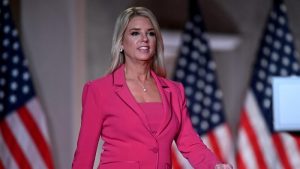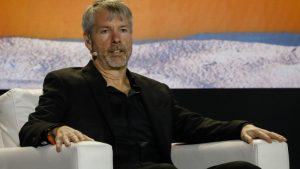How the west should re-engage with the global south
Unlock the Editor’s Digest for free
Roula Khalaf, Editor of the FT, selects her favourite stories in this weekly newsletter.
Your Majesty, I was so looking forward to seeing you at the Commonwealth Heads of Government Meeting but unfortunately owing to a diary clash I am unable to come . . . Yours apologetically
The offices of India’s Prime Minister Narendra Modi and South Africa’s President Cyril Ramaphosa must have faced quite the drafting challenge when their leaders chose to skip last week’s Commonwealth summit to attend instead a meeting hosted by Vladimir Putin.
Few though would dispute the strategic sense of their sidestep. It is an unambiguous reminder of the waning influence of western-led multilateral organisations in the global south. It is also another sign of the broader decline of what became hubristically known in the post-cold war decades as the international community.
Yet the rebuff is paradoxically a timely jolt for the Commonwealth and Britain’s new government — and implicitly the west as a whole. David Lammy, the UK’s foreign secretary, has rightly made repairing relations with the global south a priority. Now is the time to put flesh on the bones of this idea.
As it happens, there were three summits last week. Kazan hosted the Brics, the original group of Brazil, Russia, India, China and South Africa now busily expanding across the global south; Washington hosted the autumn meetings of the Bretton Woods institutions; and then there was the Commonwealth’s biennial meeting in Samoa.
The latter two are veterans of the post-second world war order, founded in 1944 and 1949 respectively. But the action last week was at the meeting of the Brics, which first met in 2009.
The IMF and World Bank were never going to make meaningful decisions on reform just ahead of next week’s US election; a victory for Donald Trump could put their plans in disarray. As for the Commonwealth, without the Queen who presided over it from 1952, it needs a new rationale. In the blunt framing of January Makamba, Tanzania’s former minister of foreign affairs, it has a role but is “half dead and urgently requires resuscitation”.
Which leaves the Brics. It is a commonplace in the west to deride it. Absolutely it is riddled with inconsistencies. It’s a mixed bag of autocracies, democracies and states somewhere in between. Its stance on global issues can sound like anti-western agitprop. Its most economically powerful members, India and China, are at loggerheads. As for its ambitions for an alternative economic order — a currency, a central bank, a new payments system — they remain wildly aspirational.
But it does embody resonant ideas: global power is shifting, and the western sway over the financial system is under attack. In short, the post-1945 order is crumbling and, while its successor is undefined, autocratic Russia and China are seeking to fill the vacuum. Brics is emerging as a “hub and spoke model with China as the centre”, a Bruegel analyst wrote this week, concluding the west has “to react with a better offer” to the global south.
Lammy likes to talk of treating the world as it is and not how we want it to be. This is a good start. At the UN last month, he spoke powerfully to me about the west’s failure to talk enough about the war in Sudan, and the need to rethink the architecture of global finance, which sees African sovereigns — and especially corporates — pay crippling interest rates despite modest default levels. Kamala Harris’ team suggests wooing the global south would be important to her if she wins next week.
There are two obvious ways to start: to go beyond generalities and define a reimagined multilateral system; and, while avoiding the west’s default lecturing of past decades, to emphasise the benefits of co-operation with the west, not least in climate finance, hardly a priority of Russia, for example.
Britain’s Africa minister, Lord Ray Collins, and Peter Pham, an influential voice on Africa in Republican circles, both talked this week of the need to prioritise promoting growth, and the role of finance in this mission. Pham suggests that for too long the US-Africa relationship has been largely seen through the prism of aid rather than investment. There is talk of trade becoming more integral to the thinking of the Commonwealth.
This is a clear and sensible shift of tone and tack. A refrain at this week’s FT Africa summit in London was that Britain has been lamentably absent from the continent in recent years. EU officials too say they are looking for signs that Britain’s new government is willing to play a more prominent leadership role in Africa and elsewhere.
Where better for Lammy to outline such a vision than in South Africa next week when, shamefully, he will be the first foreign secretary to visit for more than a decade?
#west #reengage #global #south





